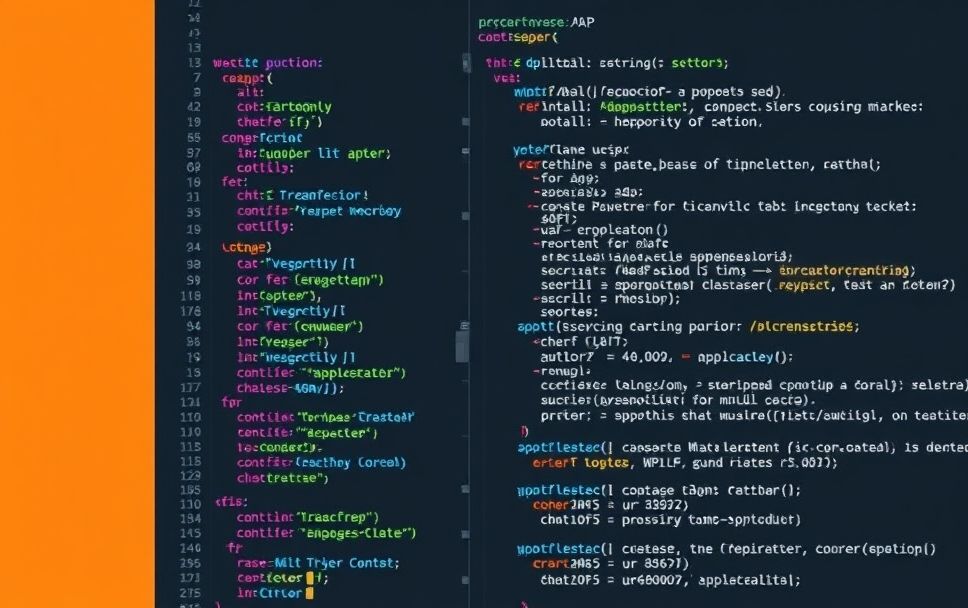Understanding Programming Concepts
Programming concepts are the foundational ideas that underlie the practice of coding and software development. They encompass a wide range of topics, from basic syntax and algorithms to more advanced theories such as data structures and design patterns. Mastering these concepts is crucial for anyone looking to build a successful career in technology, as they form the building blocks of effective programming.
The Importance of Programming Concepts in Software Development
Programming concepts are essential for several reasons:
- Problem-Solving Skills: Understanding these concepts enhances your ability to solve complex problems efficiently.
- Code Quality: A solid grasp of programming principles leads to cleaner, more maintainable code.
- Collaboration: Familiarity with common concepts aids in effective communication with other developers.
- Adaptability: Knowledge of various programming paradigms allows you to switch between languages and technologies with ease.
In the following sections, we will delve deeper into key programming concepts, exploring their definitions, applications, and real-world examples.
Core Programming Concepts
Here are some of the fundamental programming concepts that every developer should know:
1. Variables and Data Types
Variables are used to store data values. Each variable has a data type which defines the kind of data it can hold, such as integers, strings, or booleans. Understanding how to use variables effectively is crucial for writing functional code.
- Example: In Python, you might declare a variable like this:
name = 'Alice'. Here,nameis a string variable.
2. Control Structures
Control structures direct the flow of execution in a program. They include conditionals (if-else statements) and loops (for and while loops).
- Example: A simple if-else statement in JavaScript could look like this:
if (age >= 18) { console.log('Adult'); } else { console.log('Minor'); }
3. Functions and Procedures
Functions are reusable pieces of code that perform a specific task. They help to reduce code duplication and improve organization.
- Example: In Ruby, you can define a function like this:
def greet(name) puts 'Hello, ' + name end
4. Data Structures
Data structures are ways to organize and store data so that they can be accessed and modified efficiently. Common data structures include arrays, lists, stacks, queues, and hash tables.
- Example: An array in JavaScript is defined like this:
let fruits = ['apple', 'banana', 'cherry'];
Programming Paradigms
Programming paradigms are approaches to programming that dictate how problems are solved. Understanding different paradigms can enhance your programming versatility.
- 1. Procedural Programming: Focuses on a sequence of tasks to be performed.
- 2. Object-Oriented Programming: Centers around objects that combine data and behaviors.
- 3. Functional Programming: Emphasizes functions and immutability.
Each paradigm has its strengths and is suitable for different types of problems. For instance, object-oriented programming is commonly used in large-scale applications where reusability and maintainability are critical.
Real-World Applications of Programming Concepts
Understanding and applying programming concepts can enhance your efficiency and effectiveness as a developer. Here are some practical applications:
1. Building Web Applications
When developing a web application, you need to understand how to structure your code using functions, data types, and control structures. For example, using APIs to fetch data requires knowledge of how to manipulate data structures.
2. Automating Tasks
Using programming concepts, you can write scripts to automate repetitive tasks. For instance, a Python script can be used to scrape data from websites or process large datasets.
3. Game Development
In game development, understanding object-oriented programming is vital. You will often create classes for different game entities, such as players, enemies, and items.
4. Data Analysis
Programming concepts are extensively used in data analysis. Knowledge of data structures helps in managing large datasets, and functions are essential for performing calculations and transformations.
Conclusion: The Value of Mastering Programming Concepts
In conclusion, mastering programming concepts is not just beneficial but essential for anyone pursuing a career in technology. They provide the foundation for writing efficient and maintainable code, enhancing your problem-solving skills, and enabling effective collaboration with others in the field. By continuously learning and applying these concepts, you can stay ahead in the ever-evolving landscape of technology.
Reflection and Action
Now that you have a comprehensive understanding of programming concepts, consider how you can apply this knowledge to your current projects. Whether you are building a web application, automating tasks, or analyzing data, take the time to revisit these concepts and integrate them into your work. Continuous learning and application will ensure your growth as a developer.
Related Concepts
- Algorithms
- Software Development Life Cycle (SDLC)
- Version Control Systems (e.g., Git)
- Design Patterns
By exploring these related concepts, you can deepen your understanding of programming and its applications in the real world.









